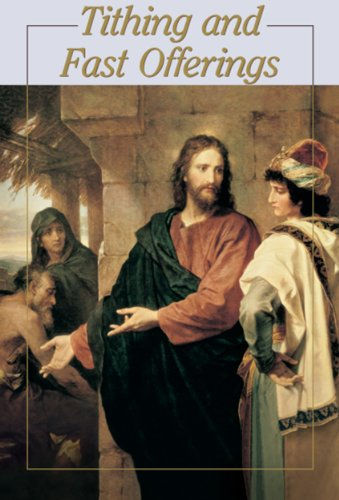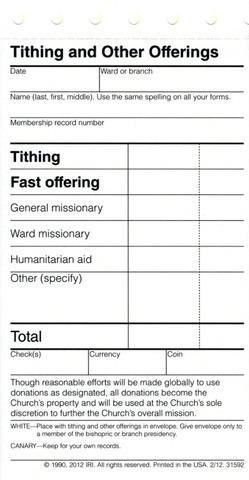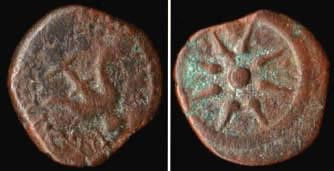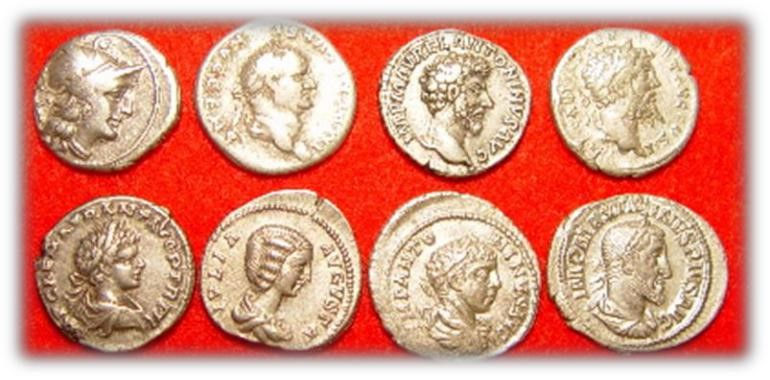81. Sacred Tithes and Offerings
- L Rshaw

- Jan 9, 2020
- 11 min read
Updated: Jul 8, 2022
"Giving is not just about making a donation. It's about making a difference"
--- Kathy Calvin (Former President and CEO of the United Nations Foundation; 1949 - Present)
We don’t pass around a tray for donations in the Church of Jesus Christ of Latter-Day Saints. Tithing is different and much more personal and confidential. Whereas the world sees only dollar signs, the commandment to tithe builds upon eternal principles of faith, personal sacrifice, and selflessness. Together, with fast offerings, these donations that faithful members of the Church make enable a variety of services and aid to be provided throughout the world, to people of all faiths, nationalities, and so forth. Tithing is a necessary source of good in the world and the good it does exceeds its weight in gold.
**NOTE: If you wish to get in contact with missionaries of the Church to learn more, you can do so at https://www.churchofjesuschrist.org/comeuntochrist/requests/missionary-visit
Click to Select (Table of Contents):

When I started writing this post, I didn't anticipate what lengths I had to say about this matter. The pamphlet that missionaries use to teach tithing is the smallest of the six main pamphlets (About 12 pages or 6 pages front and back in English). The cover depicts the story of the Young Rich Man. Asks the young man to Jesus, "What good thing shall I do, that I may have eternal life?" (Matt. 19:16), followed by the question, "What lack I yet?" (vs. 20). Jesus replies, "If thou wilt be perfect, go and sell that thou hast, and give to the poor, and thou shalt have treasure in heaven..." (vs. 21). But when the young man heard that saying, he went away sorrowful: for he had great possessions. To be wealthy is not a sin, but to value it of greater worth than our fellow man should make us reevaluate our life's priorities.
Tithing is something that the materialistic society is quick to point a finger at because they see it as financial loss and are oblivious or skeptical of the blessings. The world envies wealth and power; think of the great evils in the world that are fueled by want of wealth and power. But those who understand the principles and purposes of tithing have a perspective and appreciation that is more than skin deep. In contrast to the many atrocities that money finances, tithing finances and invests in things of worth to the eternal soul. In truth, I consider it evidence of the true Church of Christ on Earth today. It is how the Church is able to bring the blessings of the gospel to so many.
AN ANCIENT & CURRENT COMMANDMENT
What is tithing? To tithe literally means to give a tenth. The Spanish verb is “Diezmar” or to give “Diezmo”. When we obey the law of tithing, we willingly give 10% of our income to the Lord's church (which means we still get to keep 90%!). Tithing is considered sacred funds, even the Lords funds. Malachi of the Old Testament said:
“Will a man rob God? Yet ye have robbed me. But ye say, ‘Wherein have we robbed thee?’ In tithes and offerings…Bring ye all the tithes into the storehouse, that there may be meat in mine house, and prove me now herewith, saith the Lord of hosts, if I will not open you the windows of heaven, and pour you out a blessing, that there shall not be room enough to receive it.” (Mal. 3: 8,10)
Does God need our money? Of course not! Nevertheless, we need the blessings that come from tithing both directly and indirectly.
I wish to emphasize here what Malachi says concerning tithes and offerings which was important enough to be repeated again by the resurrected Lord Jesus Christ in the Book of Mormon: Another Testament of Jesus Christ to the Nephites (3 Nephi 24: 8,10). Tithing is a commandment, yes, but it comes with a promise, a promise that corresponds with that first prophetic promise given through Lehi, “If ye shall keep my commandments, ye shall prosper in the land” (1 Nephi 4:14). Think of what Malachi is saying, those who obey the law of tithing will receive blessings beyond their capacity to receive in full! When Jesus’ disciples obediently cast their net on “the right side of the ship…they were not able to draw it for the multitude of fishes” (John 21:6). Now, that is not to say that we will always be blessed financially, though sometimes that is the case, but we don’t pay tithing in the hope to get rich; that is a misguided reason. But I have witnessed both temporal and spiritual blessings, and I know that our treasures in heaven are sure. My family has never been wealthy but we've always had our needs met.
Tithing is not something new. Scriptural accounts speak of tithing as early as the book of Genesis when Abraham (then still known as Abram) gave tithes unto the high priest Melchizedek (Gen. 14:18-20). Although it is true that not all tithing always was or is monetary (anciently it was more like a portion of their harvest), where we don’t have currency to give, the Lord continues to ask that we give of what we have. Maybe like Peter, we say, “Silver and gold have I none; but such as I have give I thee…” (Acts 3:6). Everyone can and should give of themselves— their time, talent, and heart to the service and blessing of others’ lives. Like Captain Jack Sparrow says, “Not all treasure is silver and gold, mate”.
Although tithing is a commandment, like all commandments, we each have our agency to obey or disobey although those who withhold an honest tithe can’t go to the temple. But neither can we enter the temple for disobeying other commandments like the Word of Wisdom or the Law of Chastity so the law of tithing should be no exception. The temple is a sacred place that requires we be in harmony with the restored gospel, and to expect admittance without keeping the commandments defeats the purpose of what the temple represents as a place of covenant-making and keeping (See "Temples -- Holy Houses of the Lord"). For that reason, it is only right that you must be an honest full-tithe-payer to enter the temple. It is not a matter of financial contribution, it is a matter of honest obedience to a commandment of God which represents faith and sacrifice.
DONATIONS & USES

All donations are kept confidential. We do not do “our alms before men, to be seen of them”, so to speak (Matt. 6:1-4). We don’t draw attention to ourselves, and we certainly don’t pass around a donation tray for everyone to watch. Traditionally, physical donations are put into what is simply referred to as a “Tithing envelope”, although it's becoming more popular to submit tithing electronically online. A donation slip, like the one you see on the right, is used to record each donation for the records of the church to be accountable for, as well as for the donor’s personal records. The only person who sees the money is the Ward financial secretary who follows strict protocols to handle the sacred funds which are deposited that same day to the Church offices (See "Church Organization"); not one cent is used for salary nor personal use. At the end of the year, you have what’s called a “Tithing Settlement” which is an interview with a member of the Ward bishopric who will give each donor a “Tithing Statement” which is a sort of receipt showing what they donated and will simply ask if the statement is accurate and if they paid a full-tithe. It doesn’t matter if our tithe amounts to a lot or a little. No one keeps track of how much you make; you are taken at your word. What matters is our commitment and honesty to the Lord.
Tithing is used for “the building of God’s kingdom of the Earth. Tithing is used entirely to pay for the operations of the church such as building and maintaining chapels to worship in, temples to make covenants in, to supply missionaries with materials like the Book of Mormon and pamphlets to distribute to the public at no charge, to support the church’s educational efforts (like BYU, seminaries, and Institutes programs), operations of MTCs, genealogy work, and other things. The church only spends that which is necessary because tithing funds represent the sacrifices of many individuals. All of these uses ultimately boil down to spiritual needs and eternal blessings.
BLESSINGS
Tithing might be considered one of those “works” we speak of (James 2:17-18). Why? Because it is an outward manifestation of our inner commitment to the Lord. It is an expression of humility, gratitude, love, obedience, and sacrifice. I know that it takes great faith to give something that is not only desirable but also needed to pay for life’s necessities. Tithing is not intended to be a burden on the believer. It’s intended to build faith in God because it reminds us to put Him before ourselves. Said the Lord:
“Take no thought for your life, what ye shall eat, or what ye shall drink; nor yet for your body, what ye shall put on. Is not the life more than meat, and the body than raiment? Behold the fowls of the air: for they sow not, neither do they reap, nor gather into barns; yet your heavenly Father feedeth them. Are ye not much better than they?” (Matt. 6:25-26).
Some blessings come now, others come with time. The Lord provides for His children, which at times includes the Bishop's storehouse. Yet, ultimately, self-reliance both temporal and spiritual is a key mission of the Church of Jesus Christ of Latter-Day Saints.
FOR WHERE YOUR TREASURE IS...

Recall the crowds of the rich casting money into the treasury to be seen of men. And there came a certain poor widow who threw in two mites, which make a farthing (a sum worth less than half a cent in American money). Said Jesus of this widow’s meager donation:
“This poor widow hath cast more in, than all they which have cast into the treasury: For all they did cast in of their abundance; but she of her want did cast in all that she had, even all her living.” (Mark 12:41-44)
Two mites (Greek lepta, plural for lepton) are together worth a quadrans, the smallest Roman coin. A lepton (meaning “small” or “thin”) was the smallest and least valuable coin in circulation in Judea, worth about six minutes of an average daily wage. Leptons were usually bronze or copper. From this short historical context, I hope you understand how insignificant the financial value these two mites held and yet Christ praises her donation— not for its quantity but because of her devotion to God regardless of her social status and circumstance.
While we are on the subject of currency, let me slip in some additional thoughts about the parable of the talents. In this biblical context, a talent was a Greek unit of weight in silver used as a unit of money. The value of a talent was about twenty years of labor, by an ordinary person. By contemporary standards, the value of a talent would be approximately $300,000 over twenty years. So even he who received one talent in the parable received a generous stewardship. I only mention this to help you appreciate the parable. I’ve already used this parable to explain that it wasn’t quantity but negligence that marked the one who had no increase beyond that which he had received as a “not a wise servant” (Matt. 25).
Whereas the world looketh on the outward appearance, God looketh upon the heart (1 Sam. 16:7). He does not ask that we give the entirety of our income, ten percent is but a fraction, but like any commandment, the purity of heart is what makes the offering acceptable before the Lord. Said the Book of Mormon prophet Alma:
“…The people of the church should impart of their substance, every one according to that which he had; if he have more abundantly he should impart more abundantly; and of him that had but little, but little should be required; and to him that had not should be given. And thus they should impart of their substance of their own free will and good desires towards God…” (Mos. 18:27-28)
I know that there is wisdom in the commandment to tithe. I know that it blesses us and builds the kingdom of God because I’m not only a witness to it but a recipient of the blessings it both gives and provides. I know that the principle of sacrifice and charity it represents is at the core of it. Material things are nice but they are just temporal things. I would hope that to all those whom the Lord would ask, “Lovest thou me more than these [things]?” will be able to honestly respond from the heart “Yea, Lord; thou knowest that I love thee” and prove that love through deed, not word alone (John 21:15-17). Jesus taught succinctly, "For where your treasure is, there will your heart be also." (Matt. 6:21)

At the close of Christ’s mortal ministry, His opponents first came tempting him with a carefully designed question hoping to trick Him (Matt. 22:15-17). They asked Him if it was lawful to give tribute unto Caesar or not. If he said yes, he would upset the Jews who were unhappily subject to the Romans already. If he said no, he would be accused of breaking the tax law. He asked them to bring a tribute coin (also called penny in the English KJV) which is thought to have been a denarius, a standard silver Roman coin (worth about 75 U.S. cents today). The Denarius was the daily wage for a soldier or unskilled worker. And then you had the annual temple tax paid by the Jews which was two drachmas, or a didrachma (about two days’ wages). Jesus in His wisdom inquired of the denarius, “Whose is this image and superscription?” They answered, “Caesar’s” to which He then plainly declared, “Render therefore unto Caesar the things which are Caesar’s and unto God the things that are God’s” (Matt. 22:19-21). Jesus made at least two points here: that the society was to obey the law of the land, and also render unto God that which is God’s. What is God’s? In short, everything is. He is the creator. He is the Giver. He is our loving Heavenly Father. But just as the Jews had to pay tribute and tithe (Matt. 23:23), so do we because tithing belongs to God. (Mal. 3:8)
FAST OFFERINGS & HUMANITARIAN AID
Fast Offerings are different. We define fasting as the abstinence of food and drink for a time (usually two consecutive meals). When we fast, we also voluntarily give a donation but there is no specification as to the amount (See "Fast"). The donor may give as much or as little as he or she feels appropriate although the standard is the cost of what you would otherwise have eaten. The difference between the use of tithing and fast offerings is that fast offerings are used to care for the poor and needy, and to aid in local and global humanitarian efforts. We are encouraged to donate as generously as our circumstances allow us. I couldn’t even give you an estimate of how many millions of people have been blessed, members or not of the Church of Jesus Christ of Latter-Day Saints, because of the support that fast offerings provide.
We believe in service. I invite you to discover the vast humanitarian efforts in 195 countries provided by the Church of Jesus Christ of Latter-Day Saints if you so desire (https://www.latterdaysaintcharities.org/ ). I invite you to do so of your own choosing because we do not boast of such things for popularity or praise. We believe in doing good to all; caring for the sick and afflicted, the poor, the hungry, the lonely. Countless volunteers around the world unite to give of their time and energy to help with anything from natural disaster support and recovery, to clean water projects in Africa, to food production, to any one of 2500 programs. Many acts of daily service often go unseen but that doesn’t make anyone’s service any less wonderful. And all this service is made possible by the selfless, voluntary contributions of fast offerings and other personal sacrifices.
Tithing and fast offerings have a purpose. They are sacred funds with a sacred purpose. I once again testify that the quantity of what we give is not the point. The point is that the Lord wants us to forget ourselves a little less and think about others a little more. We do amazing things when we each come together. Money is neutral. What we do with it makes it bad or good.



Comments